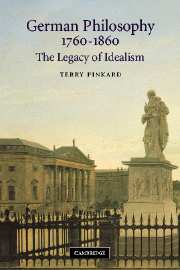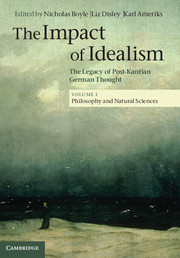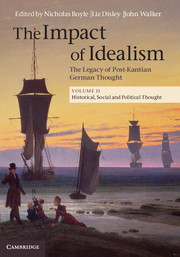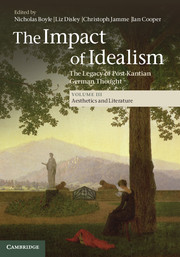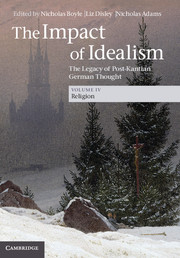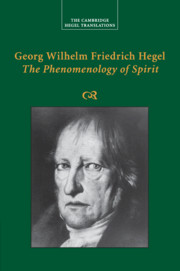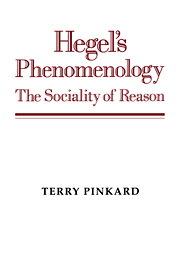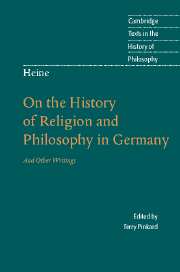German Philosophy 1760–1860
In the second half of the eighteenth century, German philosophy dominated European philosophy, changing the way Europeans and people all over the world conceived of themselves and thought about nature, religion, human history, politics, and the structure of the human mind. In this rich and wide-ranging book, Terry Pinkard interweaves the story of "Germany"--changing during this period from a loose collection of principalities into a newly-emerged nation with a distinctive culture--with an examination of the currents and complexities of its developing philosophical thought. He examines the dominant influence of Kant, with his revolutionary emphasis on "self-determination," and traces this influence through the development of romanticism and idealism to the critiques of post-Kantian thinkers such as Schopenhauer and Kierkegaard. His book will interest a range of readers in the history of philosophy, cultural history and the history of ideas.
Terry Pinkard is professor of Philosophy at Northwestern University and is the author of the acclaimed Hegel: A Biography (Cambridge, 2000). He is honorary Professor of the Philosophy Faculty of TÜbingen University, Germany and serves on the advisory board for the Zeitschrift fÜr Philosophique Forschung.
- Covers a very rich and important period in the history of German philosophy, including Kant
- Lively and accessible in style
- Offers a distinctive and integrated interpretation of the period
Reviews & endorsements
"Pinkard does an incredible job of explaining Hegel's strictly philosophical ideas and largely overcomes the barrier of Hegel's notoriously obscure style." The New York Times Book Review
"...Pinkard offers a moving account of a precarious and harried life, interspersing it with lucid and not unduly long accounts of the main arguments of Hegel's works....Mr. Pinkard has written engrossingly of a supreme instance of the life dedicated to thinking." The Washington Times
"Pinkard takes readers-carefully, succinctly and in a manner sensitive to the political and social ferment of the time-on a journey through the most important hundred years in philosophy since the Renaissance...In Pinkard's hands, what could be just names come alive as men and ideas that have much to teach us about our own beliefs about how to live." Publishers Weekly
"[A]n important history of German idealism.... Recommended." Choice
"Throughout the study, Pinkard's attention to historical detail is impressive; he presents a portrait of an entire century of German intellectual thought, which, to risk understatement, is no small task." Philosophy Today, Elizabeth MillÂn-Zaibert
Product details
September 2002Hardback
9780521663267
396 pages
229 × 152 × 25 mm
0.75kg
Available
Table of Contents
- Introduction: 'Germany' and German philosophy
- Part I. Kant and the Revolution in Philosophy:
- 1. The revolution in philosophy I: Human spontaneity and the natural order
- 2. The revolution in philosophy II: Autonomy and the moral order
- 3. The revolution in philosophy III: Aesthetic taste, teleology, and the world order
- Part II. The Revolution Continued: Post-Kantians:
- 4. The 1780s: the immediate post-Kantian reaction: Jacobi and Reinhold
- 5. The 1790s: Fichte
- 6. The 1790s after Fichte: The romantic appropriation of Kant I: Hölderlin, Novalis, Schleiermacher, Schlegel
- 7. 1795–1809: The romantic appropriation of Kant II: Schelling
- 8. 1801–7: The other post-Kantian: Jacob Friedrich Fries and non-romantic sentimentalism
- Part III. The Revolution Completed? Hegel:
- 9. Hegel's Phenomenology of Spirit: post-Kantianism in a new vein
- 10. Hegel's analysis of mind and world: the Science of Logic
- 11. Nature and spirit: Hegel's system
- Part IV. The Revolution in Question:
- 12. Schelling's attempt at restoration: idealism under review
- 13. Kantian paradoxes and modern despair: Schopenhauer and Kierkegaard
- Conclusion. The legacy of idealism.

